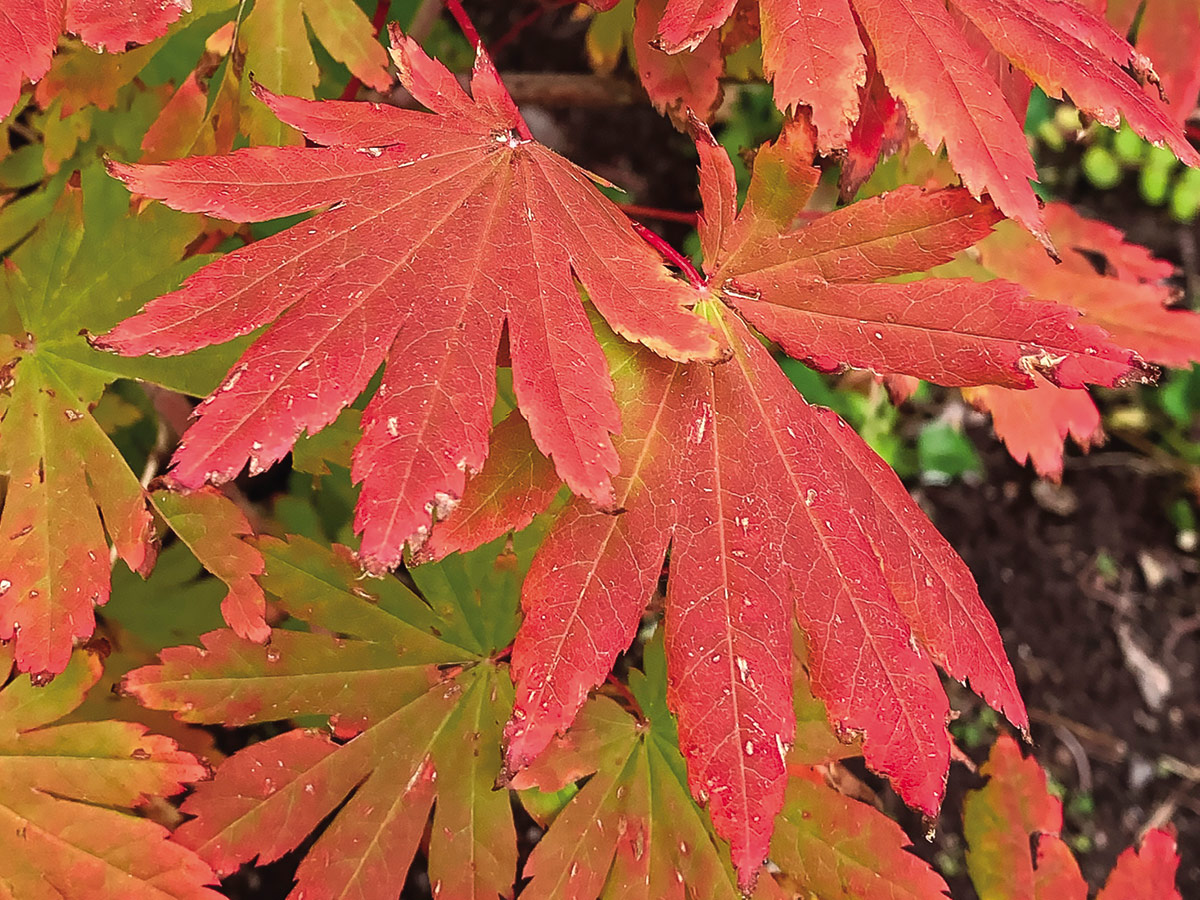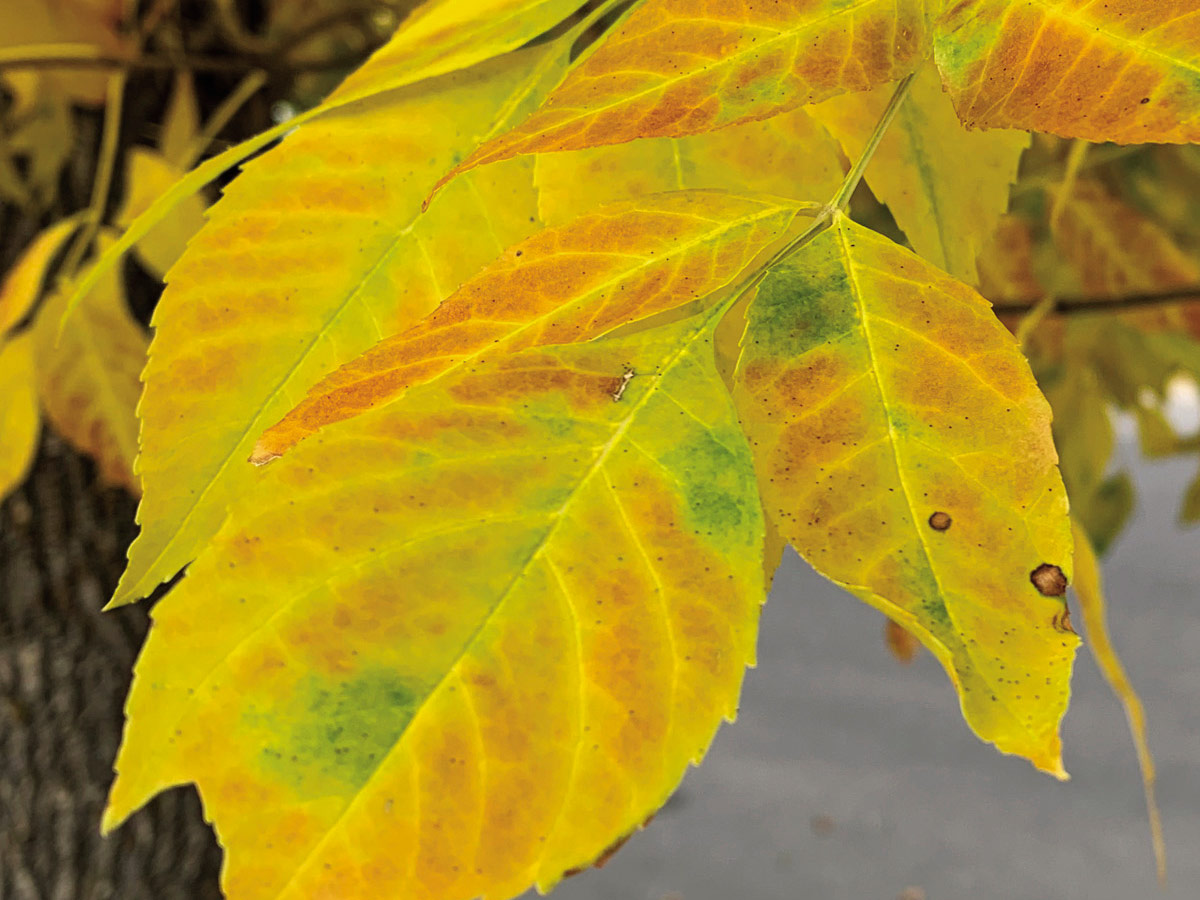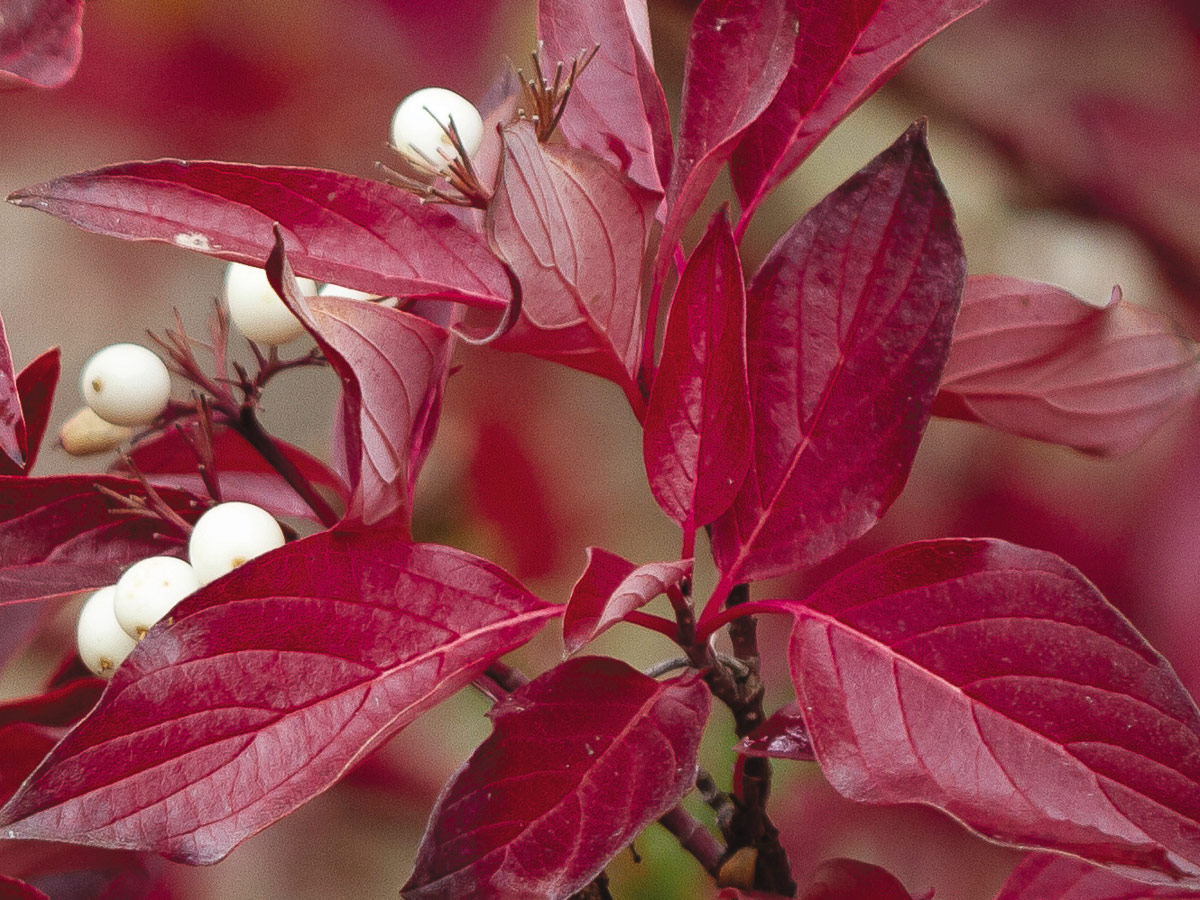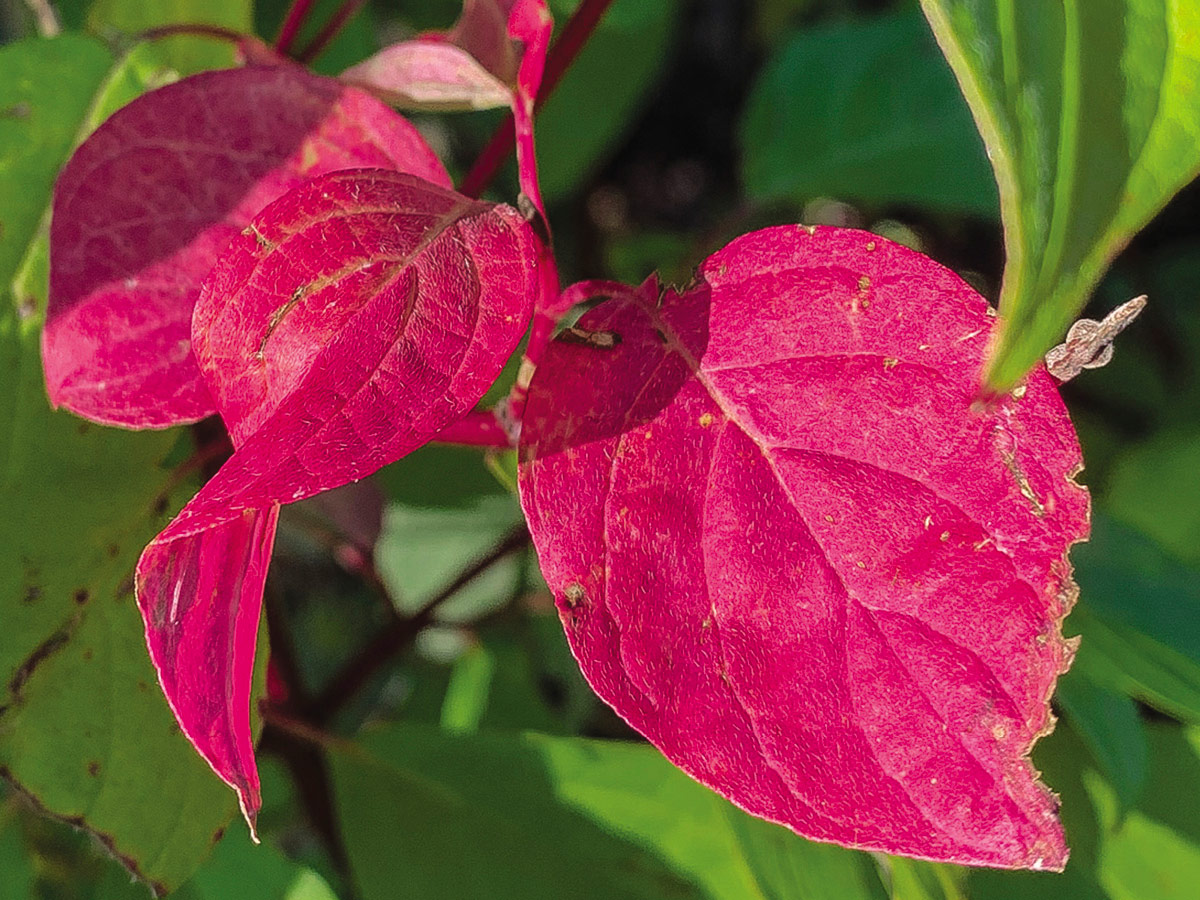In Search Of Fall Colour
Whether it’s a trip to Banff National Park to see the display of larch trees before they drop their needles or walks around the block to view the changing leaf colour of ash, elm, and poplar trees, enjoying fall leaf colour in the Calgary area is an appreciation of shades of yellow.

Sometimes its bold and bright yellow, other times paler and muted. Having hailed from northern Ontario, I still crave the vivid orange and red fall colours of my youth. In the Calgary area, while the tree canopy is fairly monochromatic, a broad spectrum of colour can be found in the shrubbery. Not only are shrubs a great source for fall colour, but they can also provide seasonal interest year-round—flowers in the spring, fruit, changing leaf colour in fall (and throughout the growing season for some), structure in winter, and habitat for birds and pollinators.
All our tree leaves have a yellow pigment in them. While the tree is growing and healthy, the rich green of chlorophyll masks the yellow pigment within the leaf tissue. In the fall, changes in day length, light intensity, and air temperature are signals to plants that the growing season is at an end and it’s time to get ready for winter by going dormant. Dormancy is an adaptation for surviving freezing temperatures. As part of the transition into dormancy leaf chlorophyll breaks down. Once chlorophyll is absent, the yellow pigment (orange too) that has been there all-season-long shows.

Having fall leaf colour in the red spectrum is the result of the pigment anthocyanin. Only some plants produce it. In these plants, glucose, a sugar, trapped in the leaves is converted to the pigment. To make the conversion, there needs to be a lot of sunlight. If there are many overcast days even trees that typically have red leaves may have a yellow fall colour. Many factors can affect fall leaf colour, but the major ones are anthocyanin content and weather. For the most vivid and longest period of fall colour, days need to be sunny and dry, and evenings very cool but without frost. This weather provides the best signals for both the light and the temperature dormancy-triggered plants. Chlorophyll production will shut down and the plant will download energy from the leaf canopy to the roots. The leaves will colour-up vividly.
If you’re looking to add fall colour to your yard, walk around your neighbourhood to see what plant is presenting the colour you’re looking for. If you can, chat with your neighbour to find out the cultivar as even closely related plants won’t necessarily display the same colour.

To add more colour to my fall garden, I have added dogwoods (Cornus sericea, Cornus alba ‘Prairie Fire’), Korean maples (Acer pseudosieboldianum), and most recently, an American highbush cranberry (Viburnum trilobum). These shrubs all offer a red fall leaf colour. The dogwoods are a dark red, while the Korean maples have a leaf colour more in the orange-red range that I’m partial to. The American highbush cranberry can range from a bright to burgundy red. I won’t know for certain which colour it will have until next fall, when the shrub’s display reflects the growing conditions of my yard. Regardless, it will be an interesting addition with its duck-foot leaf shape, vivid rosy leaf buds, and white spring flowers that are followed by red berries.

A word of caution about the dogwoods and Korean maples. Dogwoods are native to Alberta and are a common forage plant for deer, while the Korean maples are an exotic deer treat. The viburnum is supposed to be deer resistant… I’ll soon know if it is.
While the yellows of fall are beautiful, if you are looking for a broader range of fall colour in your garden, consider adding some shrubs that promise colours of red or orange.
To learn more about gardening in Calgary, or Calgary Horticultural Society membership, visit our website.
Deborah Maier
Calgary Horticultural Society
